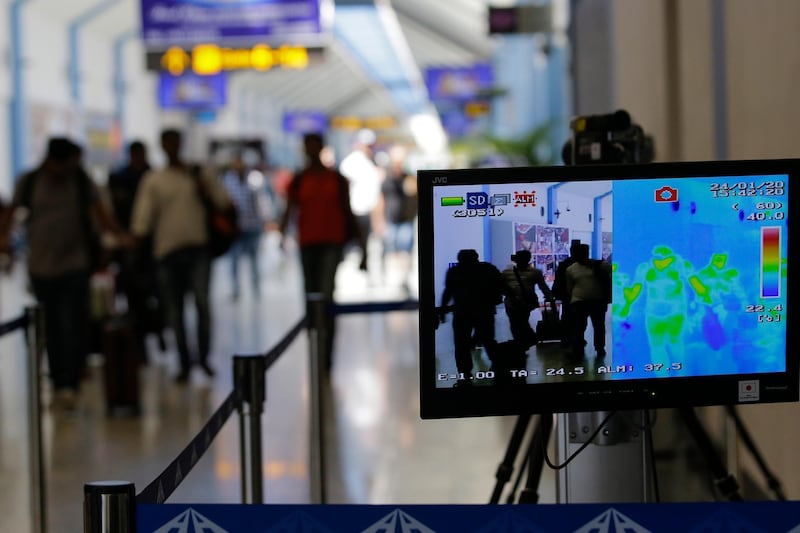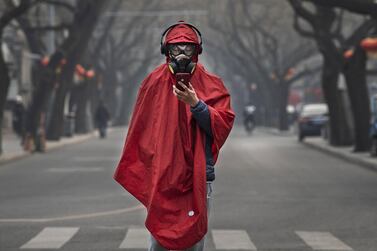Oil headed to its lowest level in three months, driven down by a build-up of US crude inventories and worries about potential economic losses from the spread of the coronavirus, as Opec indicated it would convene an emergency meeting to help contain the fallout.
Brent, the benchmark for more than half of the world's crude, dropped 2.4 per cent in trading to $58.37 per barrel at 4.04pm UAE time, while West Texas Intermediate was down 2.3 per cent at $52.13 per barrel. The London-traded Brent has fallen nearly 8 per cent over the 10 days due to rising concerns over potential impact of the outbreak on crude demand in China.
The US Energy Information Administration reported a rise of 3.55 million barrels in US inventories, the highest level level since November, beating analyst estimates. The rise in stockpile softened the brief rally in the markets on Wednesday over supply concerns following reports of attack on a Saudi Aramco refinery in Jazan by Yemen's Houthi rebels.
Aramco declined to comment on the attack and its possible impact on the company's operations.
Separately, a vessel moored off the coast of Sharjah caught fire around 4pm on Wednesday. The cause of the fire is not known and the vessel was not "loaded with any oil shipments," according to the UAE's Federal Transport Authority.
Meanwhile, more than 170 people have succumbed to the deadly coronavirus, which has brought China, the world's largest oil buyer to a standstill. Confirmed cases of the virus have exceeded 7,700 – a figure higher than the official number of infections during the Sars epidemic in 2003. The outbreak of the latest strain of coronavirus has spread to 15 countries. On Wednesday, authorities in the UAE confirmed a family of four from Wuhan, the epicentre of the outbreak, as the first case in the country.
"The spreading coronavirus, or more the measures to prevent it, keep dominating the markets with the provinces Zhejiang and Guangdong extending public holidays to February 9 yesterday," said JBC Energy in a note on Thursday.
"While the market’s attention is on the demand side, which will be difficult to assess for months to come, repercussions may be more discernible or even more relevant on the oil industry’s operational side," it added.
The coronavirus could dent jet fuel demand further, said the consultancy, noting that the Sars outbreak curtailed demand by 25 per cent.
Meanwhile, Opec+ could convene for an emergency meeting as early as mid-February, according to Algerian Energy Minister Mohamed Arkab, who holds the presidency of the exporters' group.
An Opec source told The National earlier in the week that discussions were ongoing regarding a possible meeting. The group, which is undertaking a drawdown of 1.7 million barrels per day since January, along with non-members led by Russia had earlier planned to meet on March 5 and 6 in Vienna.
Beijing has tightened restrictions on the movements of around 60 million people in a bid to contain the spread of the virus. Flights to mainland China have been grounded with domestic transportation within the country also grinding to a halt as the government urged people to observe a self-imposed quarantine.
Domestic travel within China may have declined 40 per cent year-on-year at the beginning of the current holiday period, according to JBC Energy. Swiss bank Julius Baer estimated a 20 per cent disruption to air traffic for a month could reduce Chinese demand for fuel by less than 0.2 per cent.
The World Health Organisation is set for an emergency meeting later today to tackle the virus epidemic.
The WHO "could rub salt into the wound if it issues a global alarm at today’s emergency meeting," said Ipek Ozkardeskaya, senior analyst at Swissquote Bank. "Hence, energy and travel stocks will likely remain on the chopping block in London on Thursday."








